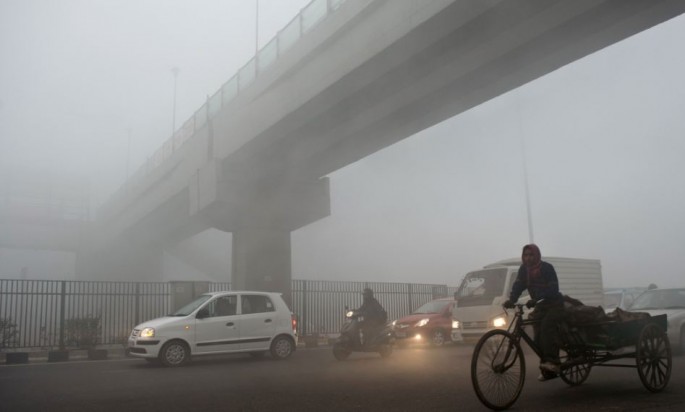India, the world's fourth largest carbon emitter, on Oct.2 ratified the historic Paris Agreement on climate change, becoming the 62nd country to formally join the international accord signed by 174 United Nations member states last April.
Oct. 2 is significant for India since it it's the 147th birthday of Mahatma Gandhi, India's legendary independence icon. Indian Prime Minister Narendra Modi also declared Oct. 2 an international day of nonviolence after the Cabinet gave its approval to the agreement.
After formally signing the climate change agreement, India handed over its official ratification documents to the UN. The instrument of ratification was delivered by India's permanent representative to the UN, Syed Akbaruddin.
To help ensure the success of the Paris Agreement, India urges the world to adopt a "Gandhian way of life," or shunning extravagant lifestyles, to cut their carbon footprints and protect the earth from climate change.
India will explain its call for a Gandhian lifestyle during the next climate conference (COP22) at Marrakech in Morocco on November 7.
"India had led from front to ensure the inclusion of climate justice and sustainable lifestyles in the Paris Agreement. We will put across this view based on Gandhian lifestyle in Morocco," said environment minister Anil Madhav Dave.
"Simple everyday changes in lifestyles, when practiced by a large number of people around the globe, collectively will make a huge impact".
With China and the U.S -- the world's two leading carbon emitters -- having already ratified the climate deal, India's assent means countries representing 51.89% of emissions have now ratified the historic agreement.
To make it legally binding, at least 55 countries representing 55% of global emissions need to formally ratify the Paris Agreement that aims to limit the rise in global temperatures to "well below" 2 degrees Celsius above pre-industrial times.
India currently emits 4.5 percent of the world's greenhouse gas emissions and is rapidly developing, a fact that will boost its future carbon emissions.
The climate change plan was initially agreed upon by over 180 countries at the 2015 United Nations Climate Change Conference or COP 21 from Nov. to Dec. 2015. Under its terms, COP 21 will not become binding until it is ratified by 55 countries that contribute a total of at least 55 percent of global greenhouse gas emissions.
The Paris agreement requires all countries that ratify it to come up with a national plan to limit global temperature rise.
As part of its plan, India has set a goal of producing 40 percent of its electricity with non-fossil fuel sources by 2030. It also promised to plant or preserve enough tree cover to act as a carbon sink for at least 2.5 billion tons of carbon dioxide.
India announced plans to quadruple its renewable power capacity to 175 gigawatts by 2022. It also plans to add 100 GW of photovoltaic capacity; 60 GW of wind power; 10 GW of biomass and 5 GW of hydro.
India is calling on the US and other fully developed countries to share technologies that help decrease emissions.
Last April, Prakash Javadekar, Union Minister of Human Resource Development, signed the agreement for India at the UN General Assembly hall.



























